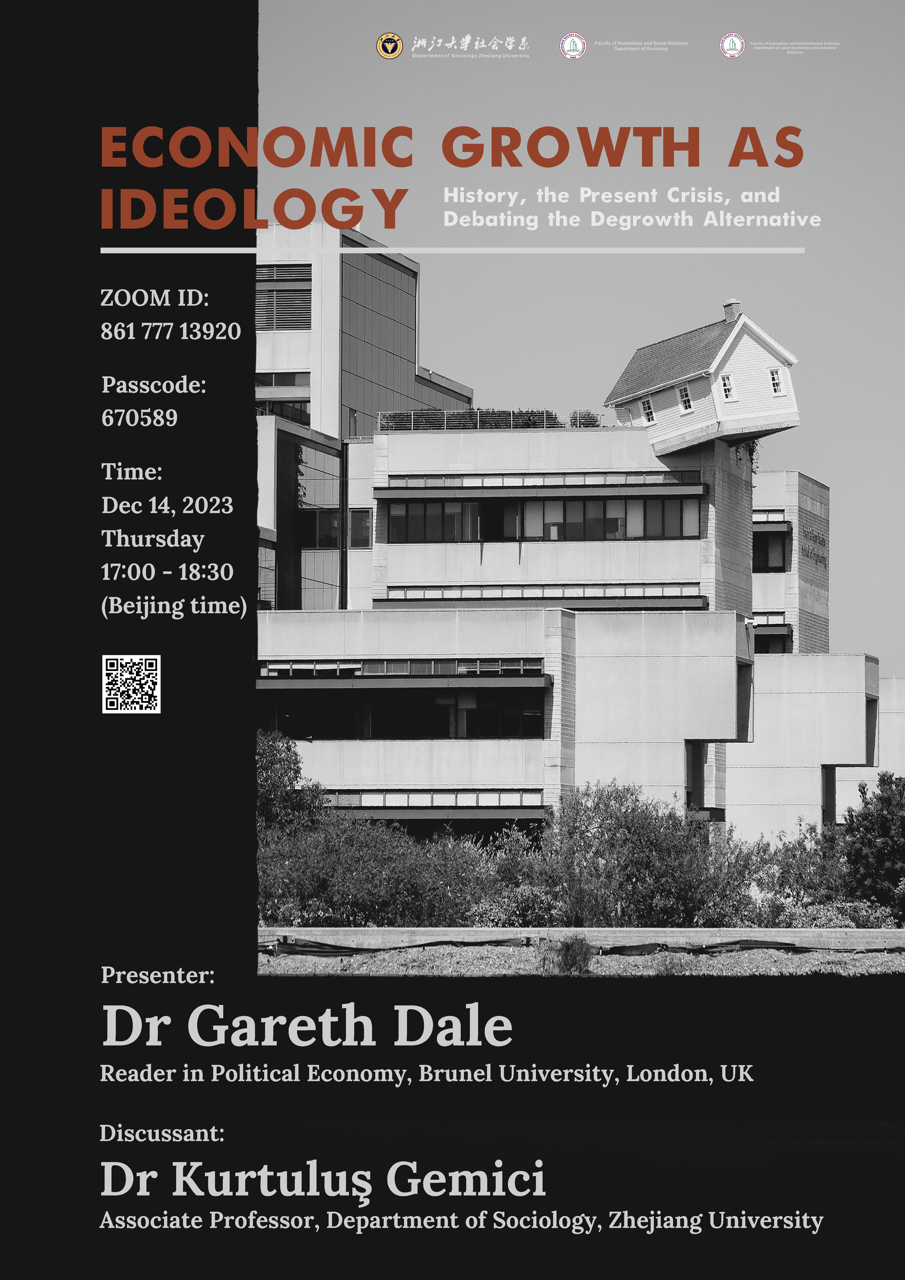Economic Growth as Ideology: History, the Present Crisis, and Debating the Degrowth Alternative

讲 座 信 息
Talk Title:Economic Growth as Ideology: History, the Present Crisis, and Debating the Degrowth Alternative
Time: Dec 14, 2023 (Thursday, 17:00-18:30)
ZOOM ID: 861 777 13920
Passcode: 670589
Abstract:
This paper explores economic growth and its ideologies. Part One investigates the nature and history of growth and growth ideology. It asks: (i) What are the distinguishing features of economic growth and growth ideology? (ii) What period of history saw the invention of economic growth? (iii) Did growth in any meaningful sense exist in earlier times? (iv) In what sense does growth function as ideology? In Part Two we home in on the current crisis of global growth and growth ideology. It asks: (i) Why has the world economy been experiencing a growth slowdown? (ii) What are the intellectual lineages of the critique of growth? (iii) Can governments successfully switch their targets from GDP to other measures such as the Human Development Index? Part Three surveys current debates on growth and the environmental crisis, with critical appraisals of green growth strategies, the Green New Deal, and the degrowth alternative.
Presenter: Dr Gareth Dale
Reader in Political Economy, Brunel University, London, UK.
Gareth is Associate Head of the Department of Social and Political Sciences. He worked at Birkbeck, the LSE, and Swansea University before joining Brunel University in 2005. His most recent books are the edited collections Revolutionary Rehearsals in the Neoliberal Age (Haymarket 2021) and Exploring the Thought of Karl Polanyi (Agenda 2019). In 2016 he published Karl Polanyi: A Life on the Left (Columbia UP) and Reconstructing Karl Polanyi: Excavation and Critique (Pluto), and Karl Polanyi: The Hungarian Writings (Manchester UP), and a critical appraisal of ‘Green Growth’ strategies (Zed Books), and The Politics of East European Area Studies (co-edited; Routledge). His earlier books were on Karl Polanyi (Polity, 2010), the political economy of Eastern Europe (Pluto), migrant labour in the European Union (Berg), and a trilogy on East Germany: its economic history, protest movements, and 1989 revolution (Peter Lang, Routledge, and Manchester UP).
Discussant: Dr Kurtuluş Gemici
Associate Professor,Department of Sociology,Zhejiang University.
He is a comparative-historical sociologist working on international finance, the sociology of markets, and theory. His work has appeared in journals such as Theory & Society, Socio-Economic Review, Sociological Theory, and Politics & Society. Recent publications include Capital Mobility and Distributional Conflict (Routledge, 2020) and How Global Are Investment Banks? (Regional Studies, 2020, with Karen Lai).